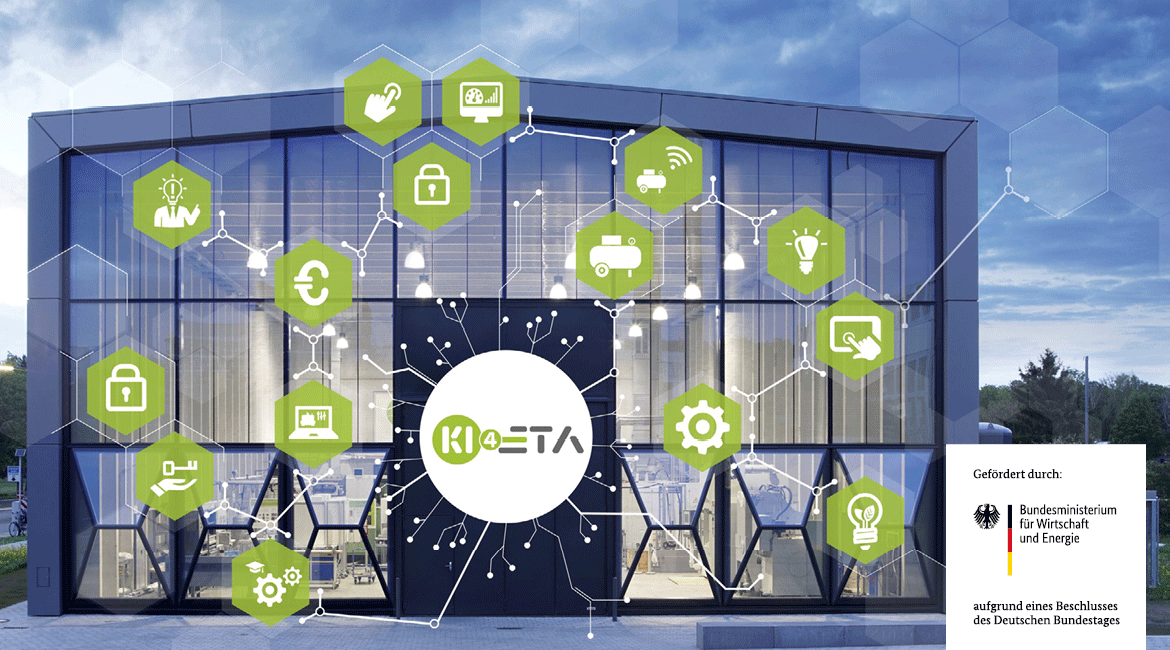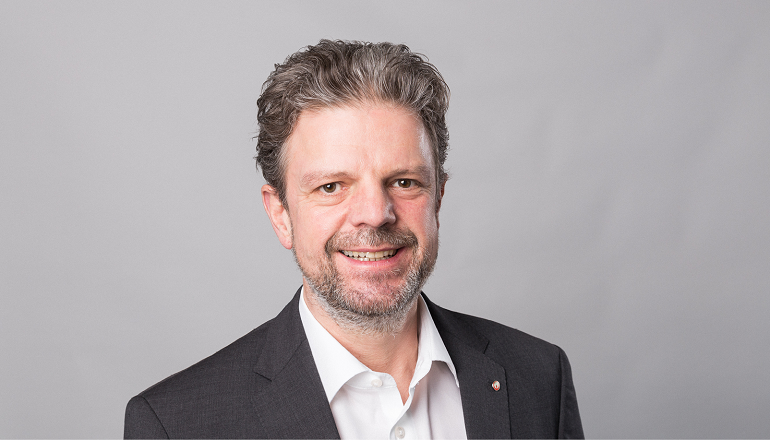New research project starts
CO2-neutral production with artificial intelligence

Scientists at Darmstadt University of Technology, together with ÖKOTEC and partners from industry, are investigating how CO2-neutral production can function in the ETA model factory. A new research project is currently being launched with the aim of optimizing production and supply using artificial intelligence (AI).
A new research project is currently being launched with the aim of optimizing production and supply using artificial intelligence (AI).
Prediction of energy consumption by AI
In the new research project KI4ETA, artificial intelligence such as machine learning is to be used to find solutions that realize holistic energy management adapted to the market. Data streams are measured in real time and managed automatically in order to operate production and energy supply in a holistic system in an AI-optimized manner. The experience gained from the completed PHI-Factory project will be applied in this process. This closes the cycle from data acquisition to energy optimization and unit control.
CO2-neutral means rethinking production
In order to produce in a CO2-neutral manner, industrial companies must not only save energy, but also rely on renewable energies. In order to make the best possible use of these and to respond to fluctuations, flexible use of energy flows is necessary.
The production of the future is located on the TU Darmstadt campus. The factory of the ETA research group (Energy Technologies and Applications in Production) is a fully digitized and energy-flexible model factory. In 2016, the project was launched to make industrial production energy-efficient, energy-flexible and resource-efficient and ultimately to achieve CO2-neutral production.
Fully digitized and energy-flexible production
ÖKOTEC has already been working on solutions for energy flexibility in the Phi-Factory research project since 2017. The aim is to reconcile the supply of renewable energies and the production-related energy demand. This is because energy-flexible control of the plants allows energy to be used when it is available in a resource-efficient manner. The solutions developed have made it possible to control energy use flexibly and increase energy efficiency. At the same time, industrial companies support the power grid and renewable energy sources can be better integrated into the power grid.
Thanks to the sophisticated software such as the Energy Efficiency Monitoring tool EnEffCo®, it is now possible to monitor and predict energy and process data and even specify default values for efficient operational management. This also involves peak loads in power consumption, which, if unregulated, quickly lead to high costs. Production can therefore be planned in terms of energy and flexibly designed as well as adapted to changing framework conditions.
The KI4ETA project has a duration of three years and is funded by the German Federal Ministry for Economic Affairs and Energy (BMWi) and the research centre Jülich.
Your contact partners
Image: © PTW TU Darmstadt



